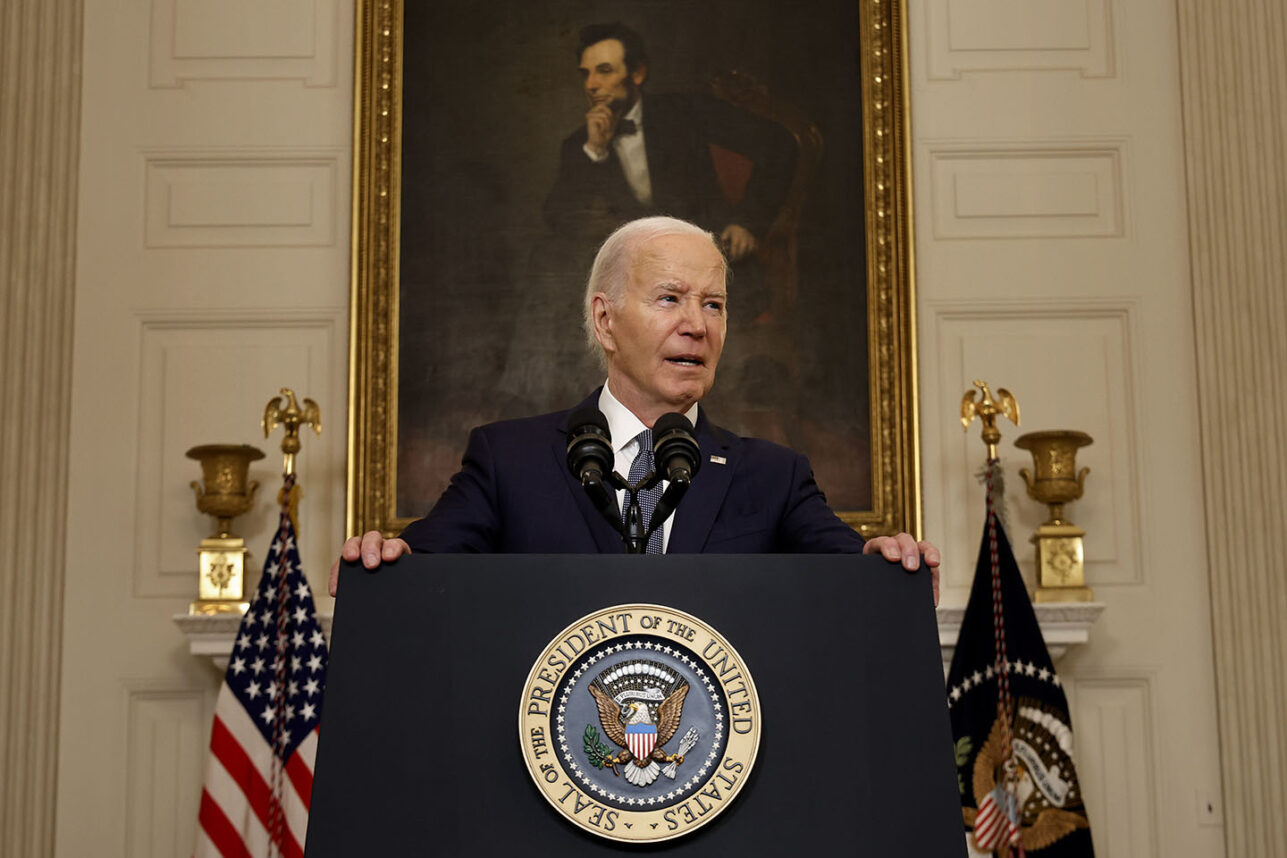 Justin Sullivan/Getty Images
Justin Sullivan/Getty Images I was going to write about Jacob Lew this week, because President Biden’s nomination of the former Obama Administration official as the next U.S. ambassador to Israel is of enormous importance to both countries.
But that discussion will have to wait, because while Lew’s nomination is big news both here and in Israel, and while the path forward for both Biden and Benjamin Netanyahu is a complicated one with lasting global ramifications, I have to write about Elon Musk instead.
I’m sorry, but I can’t help myself. Which is exactly what Musk wants. For all of his impressive technological and entrepreneurial achievements, the founder of Tesla and SpaceX’s greatest skill may be his ability to command public attention in a way that few other people on the planet can do. As much as his extraordinary business successes, the key to his outsized media profile is Musk’s willingness to seek out controversy and confrontation. He knows that both legacy and digital media are suckers for a fight, and so he continues to provide them with irresistible material that boosts his prominence to even greater levels, even when it’s a result of extremely unflattering coverage. Since his purchase of the social media company then known as Twitter, Musk has taken his thirst for notoriety to even greater levels, including his challenge to fellow tech industry billionaire Mark Zuckerberg to a mixed martial arts “cage match”.
Musk isn’t the first celebrity to understand the benefits of such public shamelessness. Long before Donald Trump’s first political campaign, the future president adopted a similar strategy. When he published “The Art of the Deal” back in 1987, Trump argued that it was preferable to receive controversial and even negative news exposure than to be ignored altogether. This approach upended conventional political wisdom, but Trump reasoned that it was easier to turn unflattering coverage into something positive than it was to attract media and voter interest when no one was paying any attention to him at all. As Trump wrote then: “Good publicity is preferable to bad, but from a bottom-line perspective, bad publicity is sometimes better than no publicity at all. Controversy, in short, sells.”
Frequently the target of scathing criticism, Trump dominated the election dialogue throughout 2016, attracting far more news exposure than traditional candidates such as Jeb Bush and Hillary Clinton. Trump then conducted himself the same way throughout his four years as president, so it should be of no surprise that he has approached his post-presidency and his current campaign in exactly the same way.
Musk’s meeting with Netanyahu during the prime minister’s upcoming visit to Silicon Valley will create many more headlines, clicks and posts than would have otherwise been the case.
Which explains why Musk has now instigated a brawl with Anti-Defamation League CEO Jonathan Greenblatt, accusing the ADL of causing a drop in advertising revenue on the platform, threatening to sue the organization for defamation, and suggesting that the ADL is responsible for the recent surge in antisemitic activity on Twitter/X due to their efforts to remove objectionable content. For good measure, Musk has reinstated several accounts that had been banned by Twitter’s previous owners for antisemitic content and has liked a post from Irish white nationalist Keith Woods that included the hashtag “#BanTheADL.” All of which guarantees that Musk’s upcoming meeting with Netanyahu during the prime minister’s upcoming visit to Silicon Valley will create many more headlines, clicks and posts than would have otherwise been the case.
I’ll admit that I don’t know whether Musk doesn’t like Jews or loves publicity or both. But if the billionaire does not harbor a prejudice against Jews, he clearly sees little downside in provoking and encouraging antisemitic activity as a means to attract large amounts of media coverage. It’s just as impossible to forecast whether he offers a Kanye-esque apology at some point or continues to argue that his attacks against the ADL are focused on an organization rather than a people, a culture or a religion. But he will continue to use our community as a scapegoat to achieve his publicity goals, a moral crime in which I am now complicit.
Dan Schnur is the U.S. Politics Editor for the Jewish Journal. He teaches courses in politics, communications, and leadership at UC Berkeley, USC and Pepperdine. He hosts the monthly webinar “The Dan Schnur Political Report” for the Los Angeles World Affairs Council & Town Hall. Follow Dan’s work at www.danschnurpolitics.com























 More news and opinions than at a Shabbat dinner, right in your inbox.
More news and opinions than at a Shabbat dinner, right in your inbox.